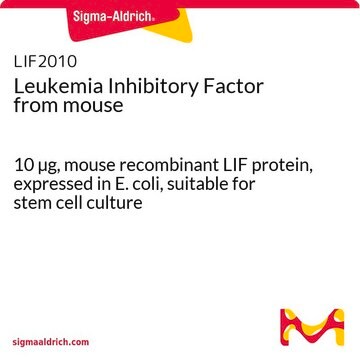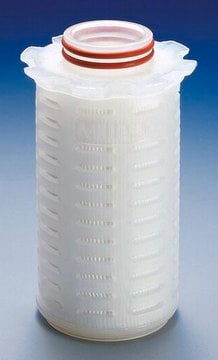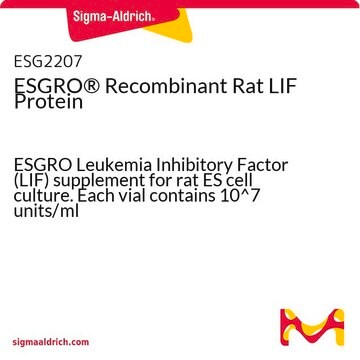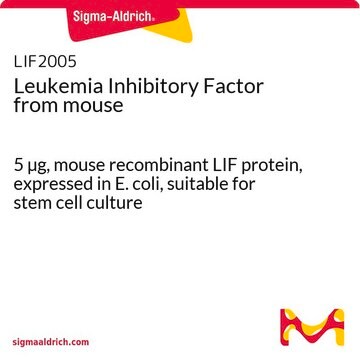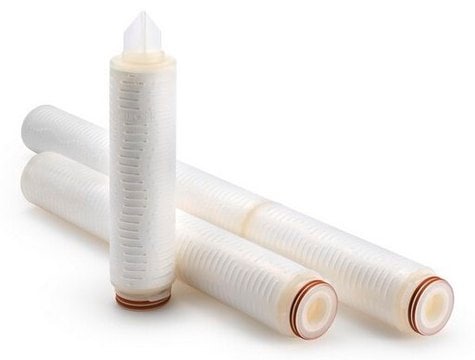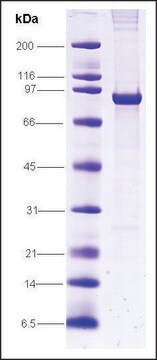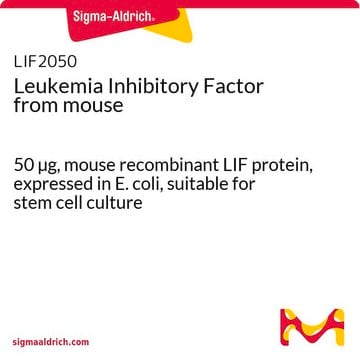LIF3010
Leukemia Inhibitory Factor Protein, Recombinant rat
Recombinant rat Leukemia Inhibitory Factor (LIF) protein is biologically active and suitable for cell culture applications.
Synonym(s):
LIF
About This Item
Recommended Products
biological source
rat
Quality Level
assay
>85% (HPLC and SDS-PAGE)
form
liquid
specific activity
≥1 x 10(e8) U/mg
manufacturer/tradename
Chemicon®
concentration
10 μg/mL
technique(s)
cell culture | stem cell: suitable
impurities
<0.1 ng/μg Endotoxin (of LIF)
input
sample type: mouse embryonic stem cell(s)
sample type mesenchymal stem cell(s)
sample type hematopoietic stem cell(s)
sample type neural stem cell(s)
sample type induced pluripotent stem cell(s)
General description
Application
M1 Bioassay
1.The M1 bioassay is performed using in vitro semi-solid agar cultures, which contain approximately 100 cells in 1 mL volumes of DME containing 20 % FCS in 0.3% agar.
2.Add 100 μL of sample or rtLIF (10(e4) units/mL in 5% FCS in isotonic saline) in two-fold serial dilutions in duplicate to 35 mm petri dishes.
3.Add 100 μL of 5% FCS in isotonic saline to two control slides.
4.Incubate at 37°C in fully humidified atmosphere of 10% CO2 in air for 7 days.
5.Score the number of colonies that show differentiation (note: 50 units is defined as the amount of activity which results in 50% of the colonies being differentiated).
Visit www.esgro-lif.com for additional information
Unit Definition
Physical form
Storage and Stability
Analysis Note
Legal Information
Disclaimer
Storage Class
12 - Non Combustible Liquids
wgk_germany
WGK 2
Certificates of Analysis (COA)
Search for Certificates of Analysis (COA) by entering the products Lot/Batch Number. Lot and Batch Numbers can be found on a product’s label following the words ‘Lot’ or ‘Batch’.
Already Own This Product?
Find documentation for the products that you have recently purchased in the Document Library.
Related Content
This article shows that a PES membrane containing Stericup Quick Release filter provides an alternative for the pluripotent expansion of embryonic stem cells.
Our team of scientists has experience in all areas of research including Life Science, Material Science, Chemical Synthesis, Chromatography, Analytical and many others.
Contact Technical Service
